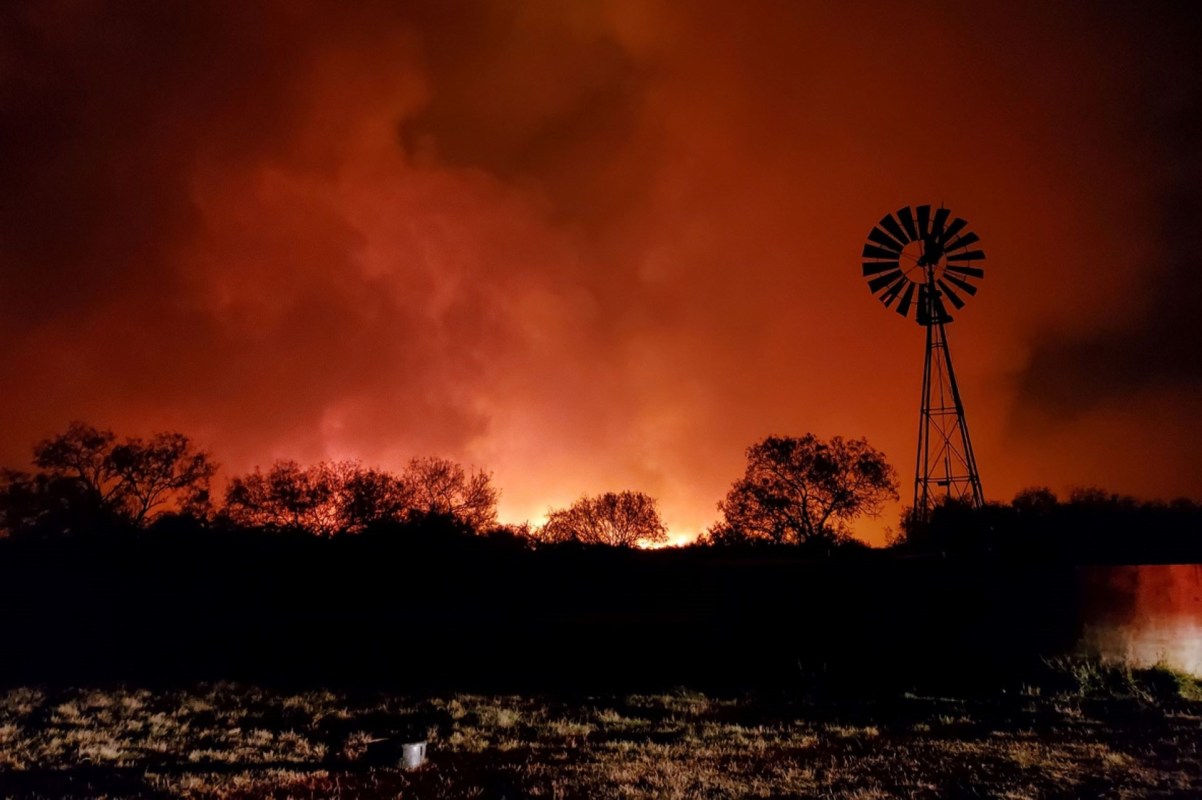As extreme weather increases, wildfires have grown more common too. But the weather isn't the only factor; an aging electrical grid is also playing a frighteningly large role.
For example, The Washington Post reported that the recent Smokehouse Creek Fire, the largest wildfire in the history of Texas, has been attributed to power lines owned by Xcel Energy.
What happened?
The fire started Feb. 26, an extremely windy day. As wind speeds topped 50 mph, resident Melanie McQuiddy says that an old and damaged utility pole snapped. According to a suit filed by McQuiddy, the downed lines started the fire, which eventually claimed her home, the Post reported.
Xcel Energy acknowledged in a news release that its equipment and power lines "appear to have been involved in an ignition of the Smokehouse Creek fire," the Post revealed.
Linda Moon, assistant director of the Texas A&M Forest Service, was much firmer in identifying Xcel Energy as the cause of the blaze, according to the Post.
The Post also turned to Whisker Labs, a company monitoring U.S. electric grids with advanced sensors, for more details. According to Whisker Labs, in the six hours before the fire, there were roughly 50 "faults" in the system — a reading often caused by downed lines or trees touching lines.
The grid was under extreme stress because of the wind, and Xcel Energy's equipment wasn't up to the task, the Post reported.
Why does the cause of the fire matter?
According to the Post, other recent disasters — such as the Camp Fire in Paradise, California; the Marshall Fire in Boulder County, Colorado; and the Maui wildfires in Hawai'i last year — all stemmed from the same cause.
Experts estimate that as many as 70% of power lines across the United States are reaching the end of their lifespans. It would take only one severe weather event to bring down lines in many of those areas — and severe weather is getting more common every year.
"We keep seeing the same pattern with these utilities," Gerald Singleton, an attorney for victims of the Marshall Fire and others, told the Post. "It's become universal because the issues they face are universal."
What's being done to prevent future fires?
In some states, such as California and Oregon, there are plans in place to shut down the power grid in areas affected by extreme weather. Unfortunately, the same cannot be said in Texas, at least not yet.
Doug Lewin, an energy expert in the state, told the Post that a conversation about the issue is needed but won't be easy.
"Shutting down transmission lines and having people without power just isn't something that policymakers, utilities have wanted to talk about," he said.
Join our free newsletter for cool news and actionable info that makes it easy to help yourself while helping the planet.









